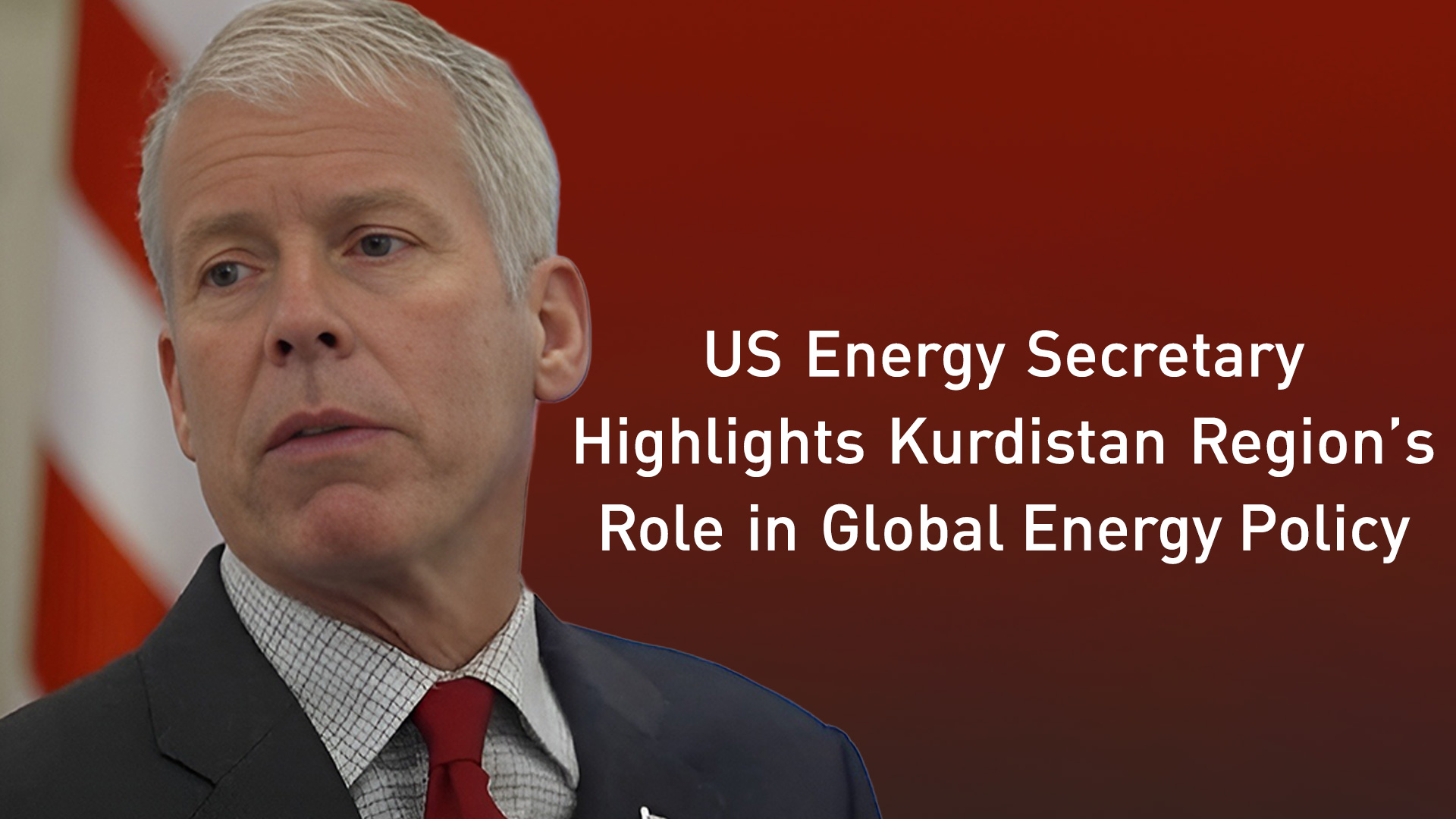US Energy Secretary Highlights Kurdistan Region’s Role in Global Energy Policy
He highlighted that both WesternZagros and HKN agreements were backed by the U.S. government, with senior officials including U.S. Secretary of State Marco Rubio reaffirming the Kurdistan Region's role as a lynchpin in U.S. Middle East policy.

ERBIL (Kurdistan24) – U.S. Secretary of Energy Chris Wright emphasized the strategic importance of the Kurdistan Region's natural resources and American investment in the region during a high-profile interview at the Al-Monitor Global Institute’s energy conference in Washington, D.C., on Thursday.
In a wide-ranging discussion with Andrew Parasiliti, Secretary Wright underscored that the Kurdistan Region is becoming a key player in regional energy development and a vital partner in advancing the United States' energy and foreign policy objectives in the Middle East.
Wright's comments came following major developments earlier in the week, when Kurdistan Region Prime Minister Masrour Barzani presided over two landmark energy agreements — a $70 billion deal with WesternZagros and a $40 billion deal with HKN. Despite renewed legal challenges from Baghdad, U.S. officials have voiced strong support for the deals and urged the Iraqi federal government to honor existing contracts in the Kurdistan Region.
“The Kurdistan Region has tremendous natural resources, and I see great opportunities for American cooperation there,” Wright said. “These partnerships are not only commercially significant — they also contribute to regional stability. That’s President Trump’s vision: prosperity at home and peace abroad.”
Wright praised recent progress in natural gas development in the Kurdistan Region, pointing to its potential to power homes, support industrial growth, and export energy to neighboring regions. He noted that the Region’s "Electricity 24" program — aimed at ensuring uninterrupted power — could serve as a model for the rest of Iraq, which remains heavily reliant on Iranian energy imports.
“We still have a billion people with little or no electricity,” Wright said. “Gas development in the Kurdistan Region can help meet that need, starting in Iraq, then expanding regionally. It’s an effort that benefits the Kurdish people, the U.S., and our shared allies.”
The energy secretary also endorsed the Runaki Project, an electricity initiative led by Prime Minister Barzani that has brought power to previously underserved areas. He called it “a remarkable success” with potential to transform lives beyond the Kurdistan Region’s borders.
When asked whether the Region’s resources could support a broader U.S. agenda of post-conflict integration across the Middle East — including in Syria and Turkey — Wright was unequivocal: “Absolutely. This aligns perfectly with President Trump’s agenda of energy dominance and partnership-driven peace.”
Wright contrasted the current administration’s approach to that of its predecessor, which he said focused too heavily on Iran at the expense of U.S. allies. “Our strategy is clear: commerce, not conflict,” he said. “We’re embracing allies like the Kurdistan Region — supporting them as energy producers and partners.”
He highlighted that both WesternZagros and HKN agreements were backed by the U.S. government, with senior officials including U.S. Secretary of State Marco Rubio reaffirming the Kurdistan Region's role as a lynchpin in U.S. Middle East policy.
Looking ahead, Wright said he envisions the Kurdistan Region becoming a regional hub for energy production and export, contributing not only to Iraq’s energy independence but also to the global energy supply.
“We’re seeing a positive trend. Our allies — in the Gulf and in Kurdistan — are reinvesting in energy and showing trust in the U.S. economy,” Wright said. “This is about building long-term alliances based on shared prosperity and stability.”
The interview concluded with a strong message of continued cooperation. “Kurdistan has the vision, the people, and the resources,” Wright said. “Together, we can help power a brighter future — for Iraq, for the Middle East, and beyond.”